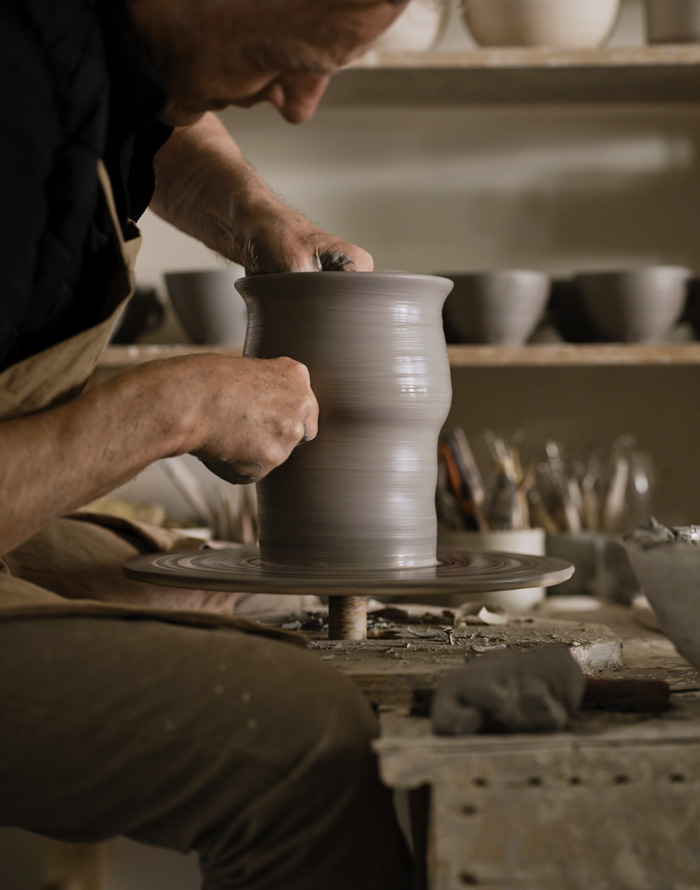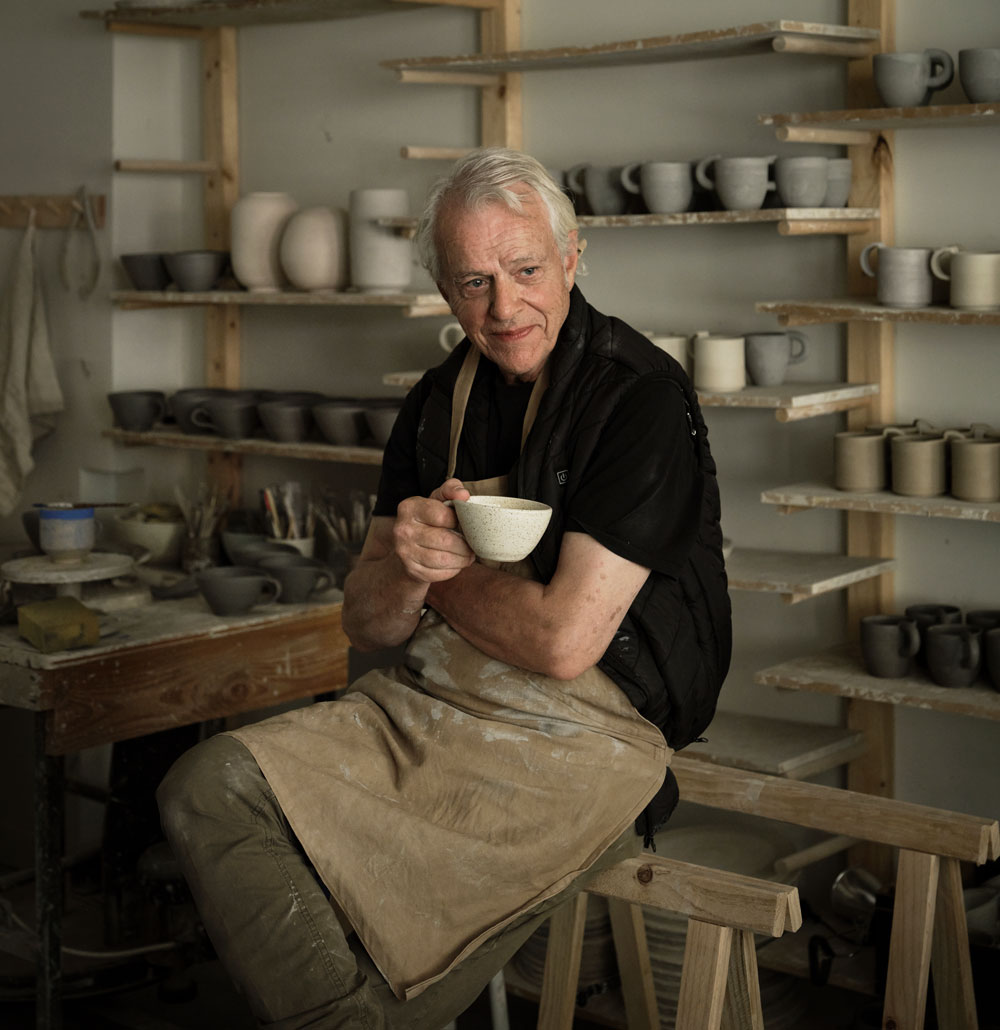
Keeping the kid inside alive – a portrait of Hans Bo
Hans is the head of the TYBO family, and with almost 50 years behind the lathe, it’s fair to call him a pottery expert, but even though he dreamed of something else in life, he is happier than ever shaping the clay in his workshop.
With a mother, who is a potter, you would think that it has always been written in the stars for Hans to become one too, but that is not the case. Growing up Hans dreamed of being an archaeologist and had a great interest in history, but life shaped differently for him.
“I was the victim of a serious assault, and one of the consequences was that I couldn’t read for years, and therefore I chose to attend the Academy of Arts, which at the time didn’t require much reading. I had always been modelling in clay, and thought, that my way of life then would be as a sculptor,”
Hans says and continues:
“It changed my mind, when one of my best teachers told me that sculptor wasn’t a job, you could live off, and then I chose to do ceramics at the Academy instead, and there I was introduced to the secrets of the lathe."
After graduation he drove around the country and sold his mother’s ceramics and opened his own workshop.
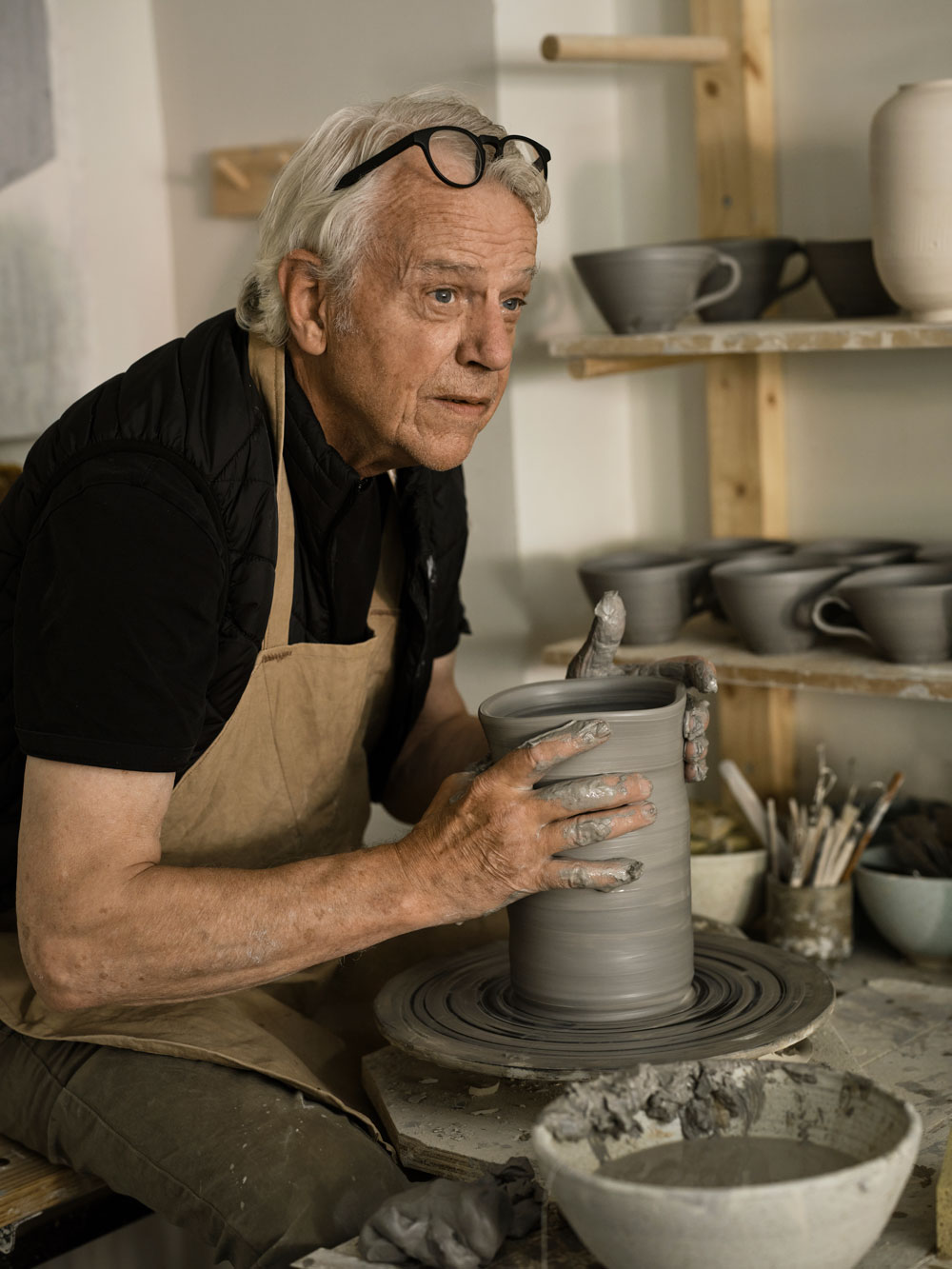
The magic material
“There is nothing that clay can’t be used for, right?” Hans smiles and in all ways his passion is visible.
“It can be used for so many different things, that just makes it an amazing tool in your hands, if you know how to use it,” Hans tells, and acknowledges that it also has limits, that you need to know.
“In the oven it becomes soft as butter on a sunny summer day, so you need to shape it to carry itself – else it will collapse. I know it becomes a little nerdy now, but that’s the magic,” he laughs.
At the same time Hans believes that the real magic lies in the glaze.
“There is an old saying among potters, that a good glaze can save a badly shaped item, and a bad glaze can ruin a good well shaped item, and believe me, that’s right,” Hans says.
And he is very proud of the simple expression of the TYBO glaze, which has become a signature for the family business.
“It’s a science to be able to make your own glaze, but ours is in my opinion perfect, because it gives our ceramics the unique timeless, always modern look.”
The family business
For Hans it has given a new joy and motivation to be part of the TYBO Art & Craft with his daughter and son-in-law.
“Nis, Stinne and the kids were at my workshop in Djursland, and we created and burned some Raku together, and when they brought it home to Vesterbro, there were a great interest for the ceramics, and then suddenly it was very popular and the demand exploded,” Hans smiles and is happy, that the family business now is running stable.
“We have been able to hire three other potters without lacking on the quality or the look, our ceramic has, and I am happy to see that Nis is now also feeling the passion about creating at the lathe,” Hans says.
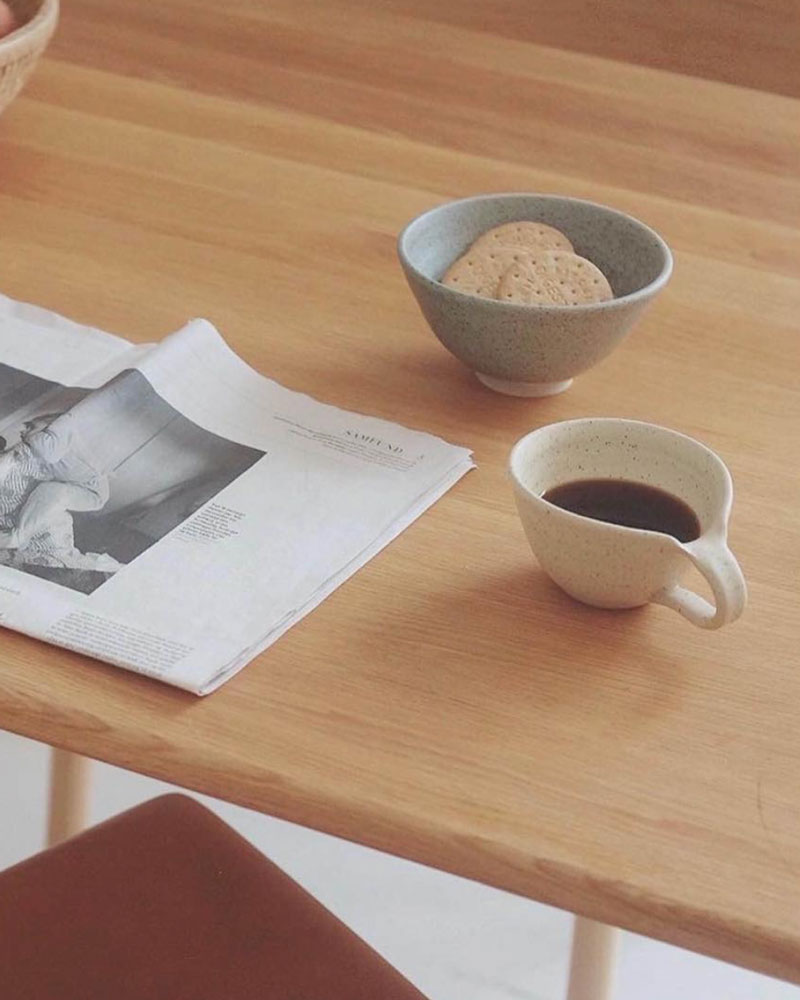
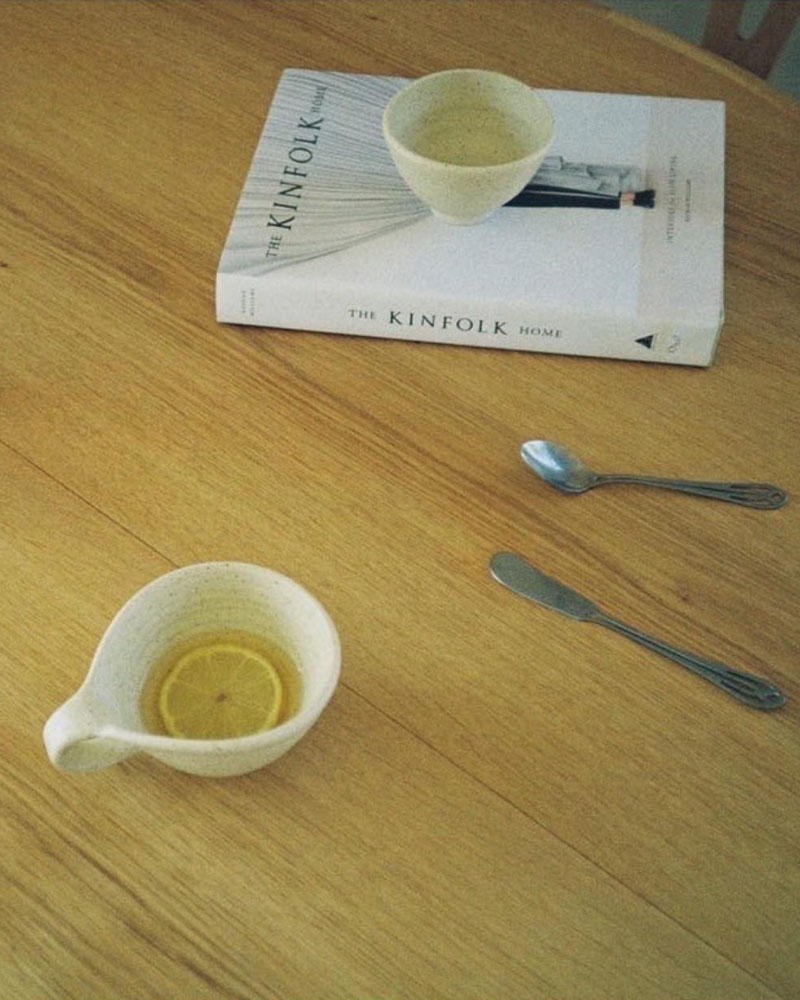
Until now the design is mainly the responsibility of Stinne, the glazing is Nis, and the production Hans. But Hans has also given name and design to his own cup.
“Stinne has a great taste and is so talented, when it comes to design, but the Hans cup was my project,” Hans smiles and continues:
“I wanted to make a chubby cup to lay in your hands and warm your fingers, and I remember Stinne reluctantly said, okay dad, let’s try, and now it is one of our bestsellers,”
he laughs, and tells it is one of the strengths in their business relationship that they can be honest to each other.
“I can be a little stubborn and say, things can’t be done in clay, but then I start to play like a kid would do and experiment at the lathe - and often it can be done,” he says with a big smile.
Proud to leave a footprint
With a long list of popular cafes and a Michelin Restaurant among the users of TYBO’s designs, one would think that it would be what Hans is most proud of. But it’s far more grounded.
“The best part is the young people that come into our boutique, who have saved up money to buy a new piece for their collection. They mix and match our different colours into their own style. I simply love that. These youngsters are collecting as my grandmother did, and they are willing to pay extra for a handcrafted piece, they can have in their homes for many years,”
Hans says and frames the interview in the finest artistic way:
“I’ll keep spinning the lathe till I fall of it,” he smiles and continues:
“The entire time, I have wished our family business would be a success, in the way it is now, where it is run in a good professional way, and it can continue without me. In some way, when I am no longer here, I have been part of creating something, that lives on, and that thought makes me feel good.”
